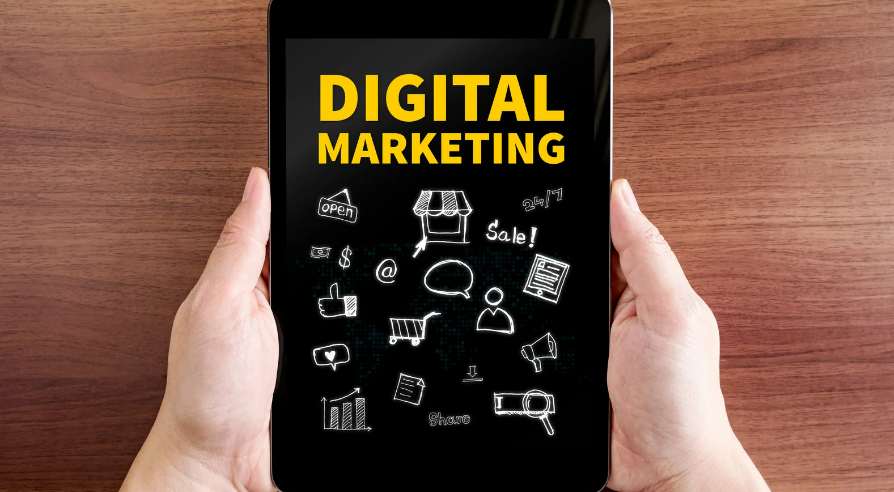You’ve got an idea, maybe a scribble on a napkin or a rough prototype. You know it has potential, but turning it into a functional product feels like staring at a mountain. This is where the MVP, the Minimum Viable Product, becomes your best friend. It’s not about perfection. It’s about testing, learning, and validating your idea without wasting precious resources.
Building a strong MVP isn’t just about coding fast. It’s about focus. You need to identify the core problem your product solves and deliver it in a way users actually want to engage with. If your MVP crashes constantly or feels half-baked, you’ll lose early adopters before you even get meaningful feedback. But if you strike the right balance—lean yet reliable—you can learn quickly and iterate confidently.
So, how do startups navigate this tricky path? And more importantly, which product development company can help you get there?
Why Your MVP Has To Be Lean, Yet Solid
A successful MVP doesn’t mean stripping everything down to bare bones. It’s about isolating the most important features that showcase your value proposition. Think about the features that will make your users nod and say, “Yes, this solves my problem.” Everything else can wait.
You also need technical reliability. An MVP that constantly fails will provide bad data and a poor first impression. At the same time, you want a foundation that allows easy iteration. This is where a product development company with experience in custom software development becomes crucial. They know how to balance speed with stability, delivering a product that’s usable from day one but flexible enough to evolve.
Picking The Right Product Development Partner
Choosing a company to help build your MVP is almost as important as your idea itself. Startups often stumble here. You can’t just go for the cheapest offer, and you don’t necessarily want the biggest agency either. The right partner understands startups, offers product development services end-to-end, and can scale their approach to match your growth.
When evaluating a partner, look at their experience with early-stage startups. Have they built MVPs that evolved successfully into full-fledged products? Can they handle both design and development? Do they offer support after launch? Communication matters too; misalignment here can cause delays and frustration.
A capable company will help you map your idea into actionable steps, define the right feature set, and avoid overcomplicating the MVP. They should also be familiar with agile workflows so your team can iterate quickly based on real user feedback.
From Idea To Strong MVP
The MVP journey usually starts with discovery. You identify the core problem, validate it with potential users, and sketch out initial solutions. Then comes design: wireframes, user flows, and mockups that show how your product will work.
Once the blueprint is ready, development begins. Short, iterative cycles allow you to build, test, and adjust quickly. You’re not chasing perfection yet. You’re aiming for learning. Every bug fixed, every feedback loop incorporated, brings you closer to a product that resonates with your audience.

After development, launch a limited version to real users. Gather insights from behavior, not just opinions. Your MVP should tell you what works, what doesn’t, and where to focus next. A good product development company will guide you through this entire process, helping you make informed decisions without unnecessary risks.
5 Product Development Companies That Deliver Results
Now let’s look at five companies known for helping startups build strong MVPs with custom software development services. These firms combine technical expertise with startup-friendly approaches.
1. ScienceSoft
ScienceSoft has a reputation for balancing structure and flexibility. They offer full-cycle product development services, from consulting and design to development and support. Startups benefit from their experience in building products that are reliable from day one but designed to evolve as user needs change. Their approach emphasizes clarity, ensuring the MVP solves the right problem without unnecessary features.
2. Relevant Software
Relevant Software focuses on custom software development tailored to startups. They understand the pressure of limited budgets and tight timelines. By emphasizing iterative development, they allow startups to validate ideas quickly while maintaining code quality. Their teams are skilled at turning conceptual sketches into functional MVPs that users can interact with and provide meaningful feedback on.
3. BairesDev
BairesDev offers rapid access to software talent and has experience scaling development teams quickly. This is ideal for startups that need to move fast or require additional resources to meet deadlines. Their expertise in product development services ensures that the MVP is not only functional but also built on a solid architecture, making future growth easier.
4. Itransition
Itransition is known for handling mid-to-large-scale MVPs. Their experience includes products that require heavy feature expansion after launch. They combine agile development with practical guidance, helping startups focus on core value while keeping options open for iteration. They’re a solid choice when your MVP needs a bit more complexity without losing speed.
5. Accenture
Accenture is the heavyweight option. While they often work with larger projects, they also provide services suitable for well-funded startups or those operating in regulated industries. They offer a comprehensive approach that combines design, development, and strategic guidance. If your startup needs robust infrastructure and high-quality delivery guarantees, Accenture can provide that structure while still supporting agile iterations.
How To Choose Among Them
It’s tempting to go for the most famous name or the cheapest option, but the key is fit. Early-stage, bootstrapped startups often do well with ScienceSoft or Itransition because they balance cost and reliability. If you need speed and flexible talent, BairesDev shines. Startups anticipating fast growth and complex design may prefer Relevant Software or GlobalLogic. And for deep-pocketed ventures with regulatory or infrastructure concerns, Accenture offers scale and guarantees.
What matters most is alignment with your goals, the ability to iterate quickly, and support for post-launch evolution.
Common Mistakes Startups Make
Many startups fall into the trap of overcomplicating their MVP. They try to launch too many features at once or hire a partner who lacks startup experience. Others ignore post-launch support or fail to establish clear communication channels. Cost-cutting at the wrong stage can also backfire, resulting in poor code quality and technical debt that slows future development.
The right approach is to keep the MVP focused, lean, and flexible, with a team that understands both the business and technical challenges of early-stage startups.
Making Your MVP Effective
Treat your MVP as a learning tool. Build analytics and error tracking early. Gather qualitative feedback through interviews and surveys. Be ready to discard features that don’t add value. Keep the tech stack simple, and resist the urge to over-optimize before validation. A product development company that knows how to guide you through these decisions can dramatically reduce wasted time and effort.
Summing It Up
Building a strong MVP requires more than just coding skills. It demands focus, clarity, and a development partner who understands startups. ScienceSoft, Relevant Software, BairesDev, Itransition, and Accenture each offer product development services and custom software development expertise that can help you navigate the MVP journey. Vet them carefully, run small pilots, and maintain open communication. With the right approach, your MVP becomes a powerful tool to validate your idea and set the stage for a successful product.



